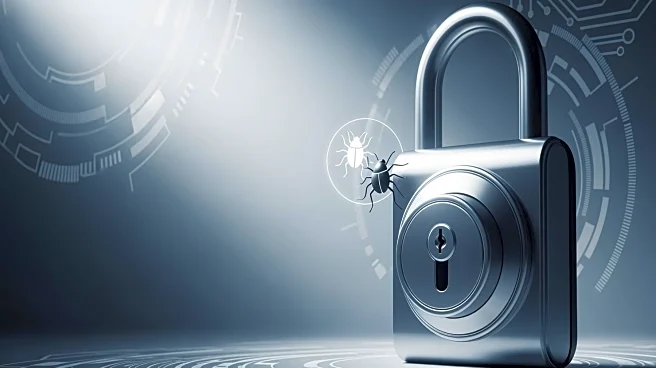What's Happening?
A researcher from Team Z3, known as Eugene (3ugen3), withdrew a planned demonstration of a $1 million zero-click remote code execution exploit against WhatsApp at the Pwn2Own hacking contest. The withdrawal was due to concerns about the exploit's technical
viability. Despite the public demonstration not taking place, Eugene agreed to privately disclose his findings to Trend Micro’s Zero Day Initiative (ZDI) analysts, who will assess the information before sharing it with Meta engineers. WhatsApp confirmed that the disclosed vulnerabilities are rated as 'low risk' and do not enable arbitrary code execution. The decision to keep the findings private was partly to protect Eugene's identity, as he signed a non-disclosure agreement preventing him from sharing details publicly.
Why It's Important?
The withdrawal of the WhatsApp exploit highlights the challenges and complexities involved in cybersecurity research, particularly in developing reliable and viable exploits. The incident underscores the importance of thorough testing and validation before public demonstrations. For Meta, the disclosure of low-risk vulnerabilities allows for proactive measures to enhance the security of WhatsApp, maintaining user trust and safeguarding against potential threats. The event also reflects the ongoing collaboration between security researchers and tech companies, emphasizing the role of bug bounty programs in identifying and addressing vulnerabilities.
What's Next?
Meta is expected to review the disclosed vulnerabilities and implement necessary security patches to mitigate any potential risks. The cybersecurity community may continue to speculate on the technical aspects of the withdrawn exploit, potentially leading to further research and development in similar areas. The Pwn2Own contest will proceed with other scheduled demonstrations, offering significant bounties to researchers who successfully demonstrate exploits against various technologies.
Beyond the Headlines
The incident raises ethical considerations regarding the disclosure of cybersecurity vulnerabilities and the balance between public demonstrations and private disclosures. It also highlights the cultural and legal dimensions of cybersecurity research, particularly concerning identity protection and non-disclosure agreements. The event may influence future hacking contests and the strategies employed by researchers in preparing and presenting their findings.

















